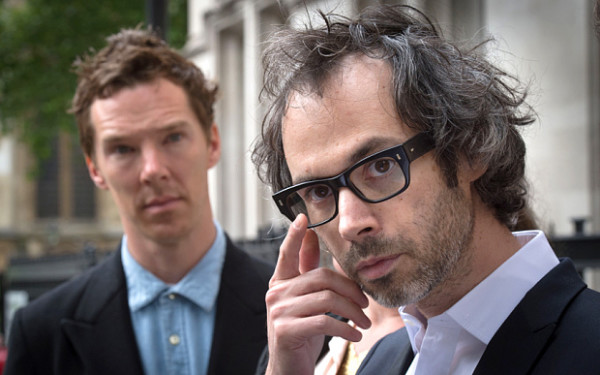Free speech ruling to tell of abuse.
May 24, 2015 · By ( Telegraph.co.uk )
A leading concert pianist has won the right to publish a harrowing account of extreme sexual abuse at his prep school as Britain’s highest court decisively rejected the idea that fear of causing distress or offence to others should be allowed to limit free speech.
The Supreme Court ruled that James Rhodes has every right to “tell the world” about his ordeal “in all its searing detail”.
Five Justices, including the President, Lord Neuberger, quashed a temporary ban on publishing parts of the book which had been secured by his ex-wife who feared that the graphic detail could cause psychological harm to their young son.
Five Justices, including the President, Lord Neuberger, quashed a temporary ban on publishing parts of the book which had been secured by his ex-wife who feared that the graphic detail could cause psychological harm to their young son.
Significantly, they ruled that although the Mr Rhodes argued persuasively that the book would help other victims, he should not have to make a public interest case to justify it at all.
“The right to report the truth is justification in itself,” they said in a judgment which champions the principles of free speech.
Mr Rhodes, 40, was accompanied to court by his friend Benedict Cumberbatch, who went to Harrow with him as a teenager, and had the public backing of some of the best known actors, writers and playwrights in the English speaking world.
Last year several prominent figures including Sir Tom Stoppard, Michael Frayn, Colm Tóibín and Stephen Fry wrote to The Daily Telegraph voicing “grave concern” at the ban, which relied on a Victorian court case, for freedom of expression.Stephen Fry, the television star, also welcomed the ruling as a “victory at last for freedom of speech”.
Speaking outside court Mr Rhodes said: “If this had been allowed to continue anyone could have used this to ban any book.
“We do not ban books in this country.”
But he said the ordeal of being “vilified in secret” for having written the truth had been an ordeal in itself.
“Abuse thrives in secrecy,” he said. “This almost killed me this last year – being totally powerless, totally out of control.”
Later, speaking to BBC Radio Four, he added: “With me, with all this ridiculous privilege I have, to have had to go through all this just to get permission what chance have any of the survivors of Rotherham, of Saville or Dolphin Square.”
In the book, called “Instrumental”, he recounts how he was first raped at the age of six by his school boxing coach, Mr Lee, in a pattern of abuse which went on for years. Mr Lee was eventually charged but died before he could stand trial.
But the abuse cast a shadow over Mr Rhodes’s whole life. It left him with horrifying injuries, requiring spinal surgery as a child and scarred his mental health leading to suicide attempts, drug and alcohol addiction and the break-up of his first marriage.
He describes the effect on him at the age of six as sudden and total – “like happily walking down a sunny path and suddenly having a trapdoor open and dump you into a freezing cold lake”.
He unapologetically uses very strong language to convey the horror he experienced, arguing that the word “abuse” does not even come close to explaining it.
But the message of the book is that music saved his life and he speaks movingly of the transformative impact of becoming father.
It is dedicated to his son, who now lives in the US with his mother but sees Mr Rhodes regularly.

In October last year after the Court of Appeal ruled there could be an arguable claim for “intentionally causing harm” to the boy, who has learning difficulties, by publishing the book.
His ex-wife brought the case under the 1897 case of Wilkinson v Downton, which effectively recognised psychological harm as a type of injury and produced expert opinion that reading the book could harm the boy.
But in the lead judgment Lady Hale and Lord Toulson said this took no account of Mr Rhodes’s right to tell his story “in the way he wishes to tell it” and that there was “every justification” for publication.
“A person who has suffered in the way that the appellant has suffered, and has struggled to cope with the consequences of his suffering in the way that he has struggled, has the right to tell the world about it,” they said.
“And there is a corresponding public interest in others being able to listen to his life story in all its searing detail.
“Of course vulnerable children need to be protected as far as reasonably practicable from exposure to material which would harm them, but the right way of doing so is not to expand Wilkinson v Downton to ban the publication of a work of general interest.”
They added: “It is difficult to envisage any circumstances in which speech which is not deceptive, threatening or possibly abusive, could give rise to liability in tort for wilful infringement of another’s right to personal safety.”
Lord Neuberger added that although it would also be argued that publishing the book is in the public interest, it was not necessary to make that case.
“Unless it is necessary to do so, I am unenthusiastic about deciding whether a book, or any other work, should be published by reference to a judge’s assessment of the importance of the publication to the public or even to the writer,” he said.
He added that it would equally be wrong to use the 1897 case to limit newspaper columns or scathing biographies.
Mr Cumberbatch said: It is a very emotional moment … It is a searing vindication of freedom of speech.”






